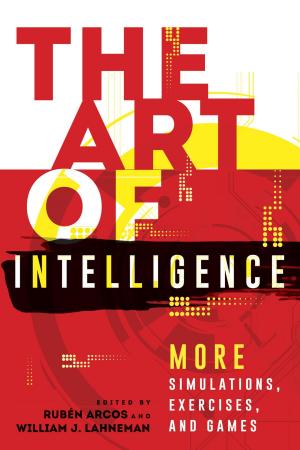Between River and Rock: How I Resolved Television in Six Easy Payments
Nonfiction, Entertainment, Television, Performing Arts, Social & Cultural Studies, Social Science| Author: | Norman Ball | ISBN: | 9781301797592 |
| Publisher: | Norman Ball | Publication: | July 1, 2013 |
| Imprint: | Smashwords Edition | Language: | English |
| Author: | Norman Ball |
| ISBN: | 9781301797592 |
| Publisher: | Norman Ball |
| Publication: | July 1, 2013 |
| Imprint: | Smashwords Edition |
| Language: | English |
Drawing heavily from David Foster Wallace and Sven Birkerts and aided at almost every turn by the ghosts of poets and great thinkers past and present, Between River and Rock is an impressionistic exposé like nothing you've read before. Here, the oldest son of Scottish closed-caption pioneer John Ball taps his TV pedigree to create a unique insider's memoir and immigrant's tale. Each narrative strand furthers the central charge that the videosphere is a Molochian ploy. The goal? To destroy human self-regard while cementing Wallace’s ‘e unibus pluram’ control-paradigm of consensual and collective alienation.
Throughout this book, poet Allen Ginsberg’s voice bubbles up like an unbidden insurgency, really a series of visitations more than intertextual citations. A complex and controversial figure in many ways, Ginsberg possessed a clarity about television’s deleterious effects that is well-recorded. As biographer Jonah Raskin notes in American Scream: Allen Ginsberg's Howl and the Making of the Beat Generation, "The function of television, [Ginsberg] insisted, was to control people, and he denounced it at every opportunity... he proclaimed that he could never tell his own secrets on TV and that television kept vital information a secret from Americans." Certainly his poetry bristles with derision for the boob tube.
There are many other voices in this book. The late David Foster Wallace and Sven Birkerts are perhaps the most represented thinkers. However Ginsberg hovers about, much as he did for the latter half of the 20th century—as haranguing busybody some would say, or true prophet others would insist. Perhaps they are the same. For the purposes of these essays he leads the poet wing of the house, the river brigade.
Drawing heavily from David Foster Wallace and Sven Birkerts and aided at almost every turn by the ghosts of poets and great thinkers past and present, Between River and Rock is an impressionistic exposé like nothing you've read before. Here, the oldest son of Scottish closed-caption pioneer John Ball taps his TV pedigree to create a unique insider's memoir and immigrant's tale. Each narrative strand furthers the central charge that the videosphere is a Molochian ploy. The goal? To destroy human self-regard while cementing Wallace’s ‘e unibus pluram’ control-paradigm of consensual and collective alienation.
Throughout this book, poet Allen Ginsberg’s voice bubbles up like an unbidden insurgency, really a series of visitations more than intertextual citations. A complex and controversial figure in many ways, Ginsberg possessed a clarity about television’s deleterious effects that is well-recorded. As biographer Jonah Raskin notes in American Scream: Allen Ginsberg's Howl and the Making of the Beat Generation, "The function of television, [Ginsberg] insisted, was to control people, and he denounced it at every opportunity... he proclaimed that he could never tell his own secrets on TV and that television kept vital information a secret from Americans." Certainly his poetry bristles with derision for the boob tube.
There are many other voices in this book. The late David Foster Wallace and Sven Birkerts are perhaps the most represented thinkers. However Ginsberg hovers about, much as he did for the latter half of the 20th century—as haranguing busybody some would say, or true prophet others would insist. Perhaps they are the same. For the purposes of these essays he leads the poet wing of the house, the river brigade.















